One of the most critical components of any hydroponic system is the nutrient solution, which provides the essential elements that plants need to thrive. With the ever-increasing popularity of hydroponics, the market is flooded with different types of hydroponic nutrients, each promising to deliver exceptional results. In this article, we’ll take a deep dive into the world of hydroponic nutrients and help you choose the best ones for your system in 2023.

If you are interested in Hydroponic Nutrients, of course, you also be interested in indoor hydroponic systems to help you easily start growing plants and grow tomatoes all year round. Our top articles: Our Picks for the 5 Grow Tent Kits, Picks for the 5 Aeroponics Systems, Our Picks for the 5 Hydroponic Bucket Systems with Buyer’s Guides, and Our Picks for the 5 best indoor vertical Garden, and Led Grow Lights for an indoor plant, and The Best Hydroponic Tower for Indoor Garden.
What Are Hydroponic Nutrients?
Hydroponic nutrients are a blend of essential elements that are necessary for plant growth and development. Since hydroponic plants don’t grow in soil, they rely on nutrient-rich water as their growing medium. The nutrient solution in hydroponic systems contains a precise balance of minerals and nutrients that the plants need to grow and thrive.
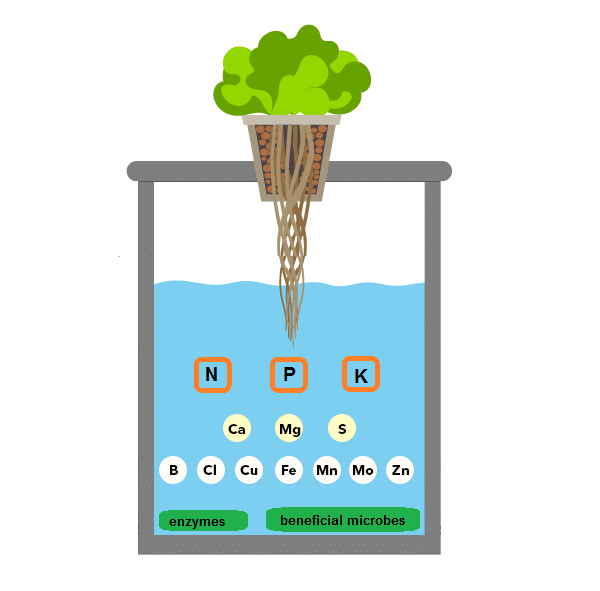
The three primary macronutrients that plants need in high quantities are nitrogen (N), phosphorus (P), and potassium (K), commonly referred to as NPK. Plants also require secondary macronutrients such as calcium (Ca), magnesium (Mg), and sulfur (S), as well as micronutrients such as iron (Fe), manganese (Mn), zinc (Zn), and copper (Cu) in smaller quantities. These nutrients are dissolved in water and delivered directly to the plant’s roots, allowing for precise control over the amount and type of nutrients that plants receive.
The quality and balance of hydroponic nutrients play a crucial role in plant growth and development, and choosing the right nutrients can make a significant difference in the health and yield of your hydroponic plants.
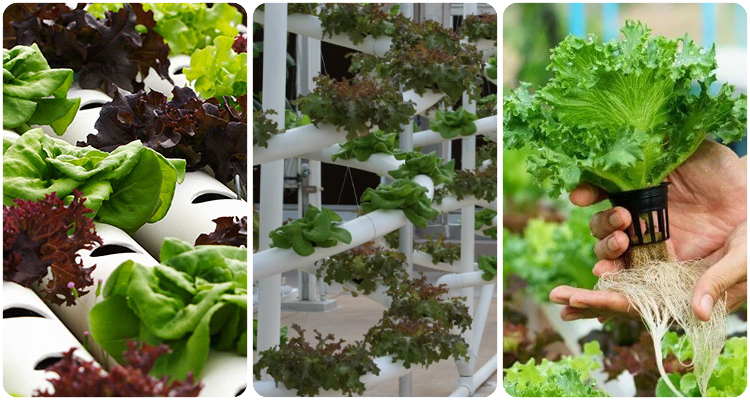
Advantages of Using Hydroponic Nutrients for Growing
There are several advantages of using hydroponic nutrients for growing plants, including:
- Improved plant growth: Hydroponic nutrients are specifically designed to provide plants with the essential elements they need to grow and thrive. This allows for faster growth rates, larger yields, and healthier plants.
- Precise control over nutrient delivery: With hydroponic systems, you have complete control over the nutrients that plants receive. This means you can tailor the nutrient solution to meet the specific needs of your plants, ensuring they get the right balance of nutrients at every stage of growth.
- Efficient nutrient use: Hydroponic nutrients are highly soluble, which means they are easily absorbed by plants, leading to more efficient nutrient use. This results in less waste and a more sustainable growing process.
- Reduced risk of pests and diseases: Growing plants hydroponically can significantly reduce the risk of pests and diseases compared to traditional soil-based growing methods. This is because there is no soil to harbor pests and diseases, and the nutrient solution is sterile, preventing the spread of pathogens.
- Less water usage: Hydroponic systems use significantly less water than traditional soil-based growing methods. This is because the nutrient solution is recirculated, and plants only take up the water they need, resulting in less water waste.
How To Choose the Best Hydroponic Nutrients?
Choosing the right hydroponic nutrients can make a significant difference in the health and yield of your plants. With so many options available, it can be overwhelming to decide which nutrients to choose. In this buyer’s guide, we’ll take a closer look at the factors you should consider when choosing hydroponic nutrients for your plants.
Type of Plants You’re Growing
Different plants have different nutrient requirements, and it’s essential to choose hydroponic nutrients that are tailored to the specific plants you’re growing. For example, some plants require higher levels of certain nutrients, while others need a more balanced mix. Additionally, some plants may be more sensitive to nutrient imbalances, while others may be more forgiving.
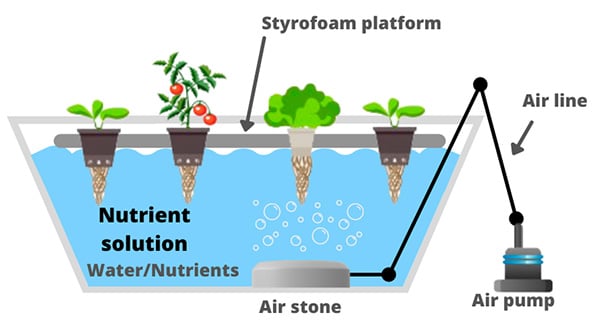
img: hydroponic Deep Water Culture or Bubbleponics schema with air stone inside a reservoir with water and nutrients with air pump too
When choosing hydroponic nutrients, consider the specific nutrient requirements of the plants you’re growing, and look for nutrient solutions that are formulated for those plants. Keep in mind that if you’re looking to grow multiple varieties of plants at once, some hydroponic nutrient solutions are specially formulated for a variety of flora types. This means there’s no need for you to spend extra time researching and finding information about each individual kind, since one nutrient formula covers it all.
Liquid vs Solid Nutrients
| Factor | Liquid Nutrients | Solid Nutrients |
| Cost | More expensive | Less expensive |
| Convenience | Easy to use | More difficult to use |
| Stability | Less stable | More stable |
| Shelf life | Shorter | Longer |
| Absorption rate | Quickly absorbed | Slower absorption |
| Risk of clogging | Lower | Higher |
| Mixing | Pre-dissolved | Need to be dissolved |
| Storage | Need airtight container | Easy to store |
Hydroponic nutrients are available in both liquid and solid form. Liquid nutrients are typically more convenient to use because they are pre-dissolved and can be easily added to your hydroponic system. They are also quickly absorbed by plants, providing fast results.
However, liquid nutrients can be more expensive than solid nutrients, and they can also be less stable, requiring more frequent monitoring and adjustments. Solid nutrients, on the other hand, are typically less expensive and more stable, making them a more cost-effective option in the long run. However, they require more effort to dissolve and may clog up your hydroponic system if not used correctly.
BONUS: Organic vs Synthetic Nutrients
| Factor | Organic Nutrients | Synthetic Nutrients |
| Source | Natural | Chemical |
| Cost | More expensive | Less expensive |
| Nutrient availability | Slower | Faster |
| Nutrient stability | Less stable | More stable |
| Environmental impact | More sustainable | Less sustainable |
| Plant health benefits | Promote soil health | Less likely to promote soil health |
| Plant nutrient uptake | More efficient | May require more monitoring |
| Purity | May contain impurities | Generally pure |
Hydroponic nutrients are available in both organic and synthetic forms. Organic nutrients are derived from natural sources and are often considered more sustainable than synthetic nutrients. They are typically more expensive than synthetic nutrients, but they offer several benefits, such as improving soil health and promoting a healthy ecosystem.
Synthetic nutrients, on the other hand, are chemically produced and are often less expensive and more stable than organic nutrients. They are also easier to store and use. However, synthetic nutrients may not be as environmentally friendly as organic nutrients, and they may not provide the same level of plant health benefits.
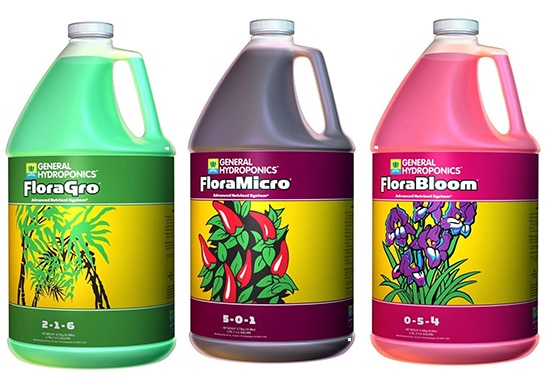 General Hydroponics Flora Grow, Bloom, Micro Combo Fertilizer, 1 gallon (Pack of 3)
General Hydroponics Flora Grow, Bloom, Micro Combo Fertilizer, 1 gallon (Pack of 3)
- Сomplete nutrient system
- Highly purified concentrates for maximum solubility
- NASAAntarctic research scientists choose flora series!
Amount of Components
Hydroponic nutrient solutions are available in one-part or multipart systems. One-part systems are pre-mixed and ready to use, making them more convenient for beginner growers or those who want a simpler approach to hydroponic growing. However, one-part systems may not provide the precise nutrient balance that some plants require.
Multipart systems, on the other hand, offer more control over nutrient delivery and can be tailored to the specific needs of your plants. They can be more complex to use, but they allow for more precise adjustments to the nutrient mix.
When choosing a nutrient system, consider your level of experience and the specific needs of your plants. If you’re just starting, a one-part system may be a good place to begin, but if you’re looking to achieve the best possible results, a multipart system may be the better choice.
Growing medium
When choosing hydroponic nutrients, it’s essential to consider the type of growing medium you’re using. Different growing mediums have different nutrient-holding capacities and can affect nutrient availability to the plants.
For example, coco coir has a high cation exchange capacity (CEC), which means it can hold onto nutrients and release them as needed. In contrast, rockwool has a low CEC, and nutrient solution flows through it quickly, which means the plants need to be fed more frequently.
Additionally, some growing mediums may interact with nutrient solutions, altering the pH level or nutrient availability. Therefore, it’s important to choose nutrient solutions that are specifically formulated for the growing medium you’re using, or to adjust the nutrient solution as needed to ensure proper nutrient delivery.
Nutrient balance
A balanced nutrient solution is critical for optimal plant growth and development. Macronutrients, such as nitrogen (N), phosphorus (P), and potassium (K), are required in larger quantities, while micronutrients, such as iron (Fe), manganese (Mn), and zinc (Zn), are needed in smaller amounts.
It’s important to choose a nutrient solution that provides the right balance of nutrients for your plants’ specific needs. Some nutrient solutions may be formulated for specific plant types, such as tomatoes or lettuce, and may provide a more tailored nutrient balance.
Additionally, some plants may have different nutrient requirements during different stages of growth, so it’s important to adjust nutrient delivery as needed.
pH level
The pH level of the nutrient solution is critical for optimal nutrient uptake and plant growth. Different plants have different pH requirements, but most plants grow best in a slightly acidic range between 5.5 and 6.5.
When the pH level is too high or too low, nutrient availability to the plants can be affected, leading to nutrient deficiencies or toxicities. It’s important to monitor and adjust the pH level of the nutrient solution regularly, using pH testing tools such as pH strips or pH meters.
Some nutrient solutions may be buffered, meaning they have a built-in system to help maintain a stable pH level. When adjusting pH, it’s important to use pH adjusters specifically designed for hydroponic use, as regular pH adjusters may contain elements that can harm your plants or cause nutrient imbalances.
7 Best Nutrients for Hydroponics
With so many options available on the market, it can be challenging to determine which products will provide the best results. Below, we’ll take a closer look at seven of the best nutrients for hydroponics, highlighting their key features and benefits, and helping you make an informed decision on the best nutrients for your specific needs.
1. Go Grow Hydroponics Plant Food
Go Grow Hydroponics Plant Food is a premium hydroponic nutrient solution designed to provide plants with the essential elements they need for optimal growth and development. This nutrient solution is formulated with a blend of macronutrients, micronutrients, and other plant growth-promoting compounds, ensuring that your plants receive a complete and balanced diet.
One of the key features of Go Grow Hydroponics Plant Food is its versatility. It can be used in a wide range of hydroponic systems, including deep water culture (DWC), nutrient film technique (NFT), and drip irrigation systems. Additionally, it can be used for a variety of plants, including fruits, vegetables, herbs, and flowers.
Another benefit of Go Grow Hydroponics Plant Food is its ease of use. The nutrient solution comes in a one-part system, meaning that it’s pre-mixed and ready to use right out of the bottle. This makes it a great option for beginner hydroponic growers or those who prefer a more straightforward approach to hydroponic gardening.
Go Grow Hydroponics Plant Food is also formulated with high-quality ingredients, ensuring that your plants receive the best possible nutrition. The nutrient solution is free from harmful chemicals and heavy metals, and it contains chelated micronutrients, which are more easily absorbed by plants.
| Pros | Cons |
| Complete and balanced nutrition | More expensive than some other options |
| Versatile and easy to use | Not suitable for organic hydroponic growing |
| Can be used in different hydroponic systems | pH adjustment may be necessary |
| Contains high-quality ingredients | Can be more challenging to find in stores |
| One-part system | May not be suitable for all plant types |
2. ALL BIO Organic Plant Food Starter Kit
ALL BIO Organic Plant Food Starter Kit is a complete hydroponic nutrient solution designed specifically for organic growing methods. It is made from high-quality organic ingredients and contains all the essential nutrients your plants need for healthy growth and development.
One of the key benefits of ALL BIO Organic Plant Food Starter Kit is its use of organic ingredients. This nutrient solution is free from synthetic chemicals and is made only from organic sources, ensuring that your plants receive a completely natural and sustainable diet. This makes it an excellent choice for those who prioritize environmental sustainability and want to avoid the potential negative impacts of synthetic fertilizers.
Another benefit of ALL BIO Organic Plant Food Starter Kit is its complete and balanced nutrient profile. This nutrient solution contains a mix of macronutrients, micronutrients, and other beneficial compounds that support healthy plant growth and development. It is formulated to meet the specific needs of hydroponically grown plants, providing all the essential elements in the right proportions for optimal plant health.
ALL BIO Organic Plant Food Starter Kit is also easy to use. It comes in a one-part system, which means that it’s pre-mixed and ready to use right out of the package. This makes it a great option for beginner hydroponic growers who are just starting out and want a simple and effective nutrient solution.
| Pros | Cons |
| Made from high-quality organic ingredients | More expensive than some synthetic options |
| Complete and balanced nutrient profile | May require more frequent nutrient changes |
| Specifically formulated for organic growing | May not be suitable for all plant types |
| One-part system for ease of use | May require additional pH adjustments |
| Sustainable and environmentally friendly | May not be as readily available in stores |
| Free from synthetic chemicals |
3. Microbe Life Hydroponics Yield Enhancer
Microbe Life Hydroponics Yield Enhancer is a nutrient solution designed to promote healthy plant growth and improve yields in hydroponic systems. It contains a blend of organic compounds, plant extracts, and beneficial microorganisms, which work together to enhance nutrient uptake and stimulate plant growth.
One of the key features of Microbe Life Hydroponics Yield Enhancer is its use of beneficial microorganisms. These microorganisms, including bacteria and fungi, help to break down organic matter in the nutrient solution and improve nutrient availability to the plants. They also help to prevent harmful pathogens and diseases from infecting the plants, promoting overall plant health.
Another benefit of Microbe Life Hydroponics Yield Enhancer is its ability to improve plant growth and yields. This nutrient solution is formulated to increase the efficiency of nutrient uptake by the plants, leading to faster growth and higher yields. Additionally, it contains plant extracts that promote the development of healthy root systems, further enhancing plant growth.
Microbe Life Hydroponics Yield Enhancer is also easy to use. It can be added directly to the nutrient solution and does not require any additional mixing or preparation. This makes it a great option for those who want a simple and effective way to improve their hydroponic gardening results.
| Pros | Cons |
| Contains beneficial microorganisms | May not be suitable for all plant types |
| Enhances nutrient uptake and plant growth | Can be more expensive than other options |
| Improves plant health and yields | May require additional pH adjustments |
| Easy to use | May not be readily available in stores |
| Contains organic compounds and plant extracts |
4. Fox Farm Liquid Nutrient Trio Hydro Formula
Fox Farm Liquid Nutrient Trio Hydro Formula is a comprehensive hydroponic nutrient solution that includes three separate components: Grow Big Hydro, Tiger Bloom, and Big Bloom. Each component is specifically formulated to provide the nutrients your plants need at different stages of growth, ensuring optimal plant health and growth.
One of the key benefits of Fox Farm Liquid Nutrient Trio Hydro Formula is its versatility. It can be used in a wide range of hydroponic systems, including deep water culture (DWC), nutrient film technique (NFT), and drip irrigation systems. Additionally, it can be used for a variety of plants, including fruits, vegetables, herbs, and flowers.
Another benefit of Fox Farm Liquid Nutrient Trio Hydro Formula is its balanced nutrient profile. Each component contains a mix of macronutrients and micronutrients, along with other beneficial compounds, that support healthy plant growth and development. Additionally, the nutrient ratio can be adjusted to meet the specific needs of your plants, providing you with greater control over your hydroponic system.
Fox Farm Liquid Nutrient Trio Hydro Formula is also easy to use. The three components can be mixed together in the appropriate ratios and added directly to the nutrient solution. This makes it a great option for hydroponic growers who want a nutrient solution that is straightforward and simple to use.
| Pros | Cons |
| Versatile and can be used in a variety of systems | May require frequent pH adjustments |
| Balanced nutrient profile for optimal plant growth | May be more expensive than some options |
| Three-part system allows for greater control and customization | Requires separate storage for each component |
| Easy to use and mix together | May not be suitable for organic growing methods |
| Can be used for a variety of plants | Can be more challenging to find in stores |
5. AeroGarden Liquid Nutrients
AeroGarden Liquid Nutrients is a nutrient solution specifically designed for use with AeroGarden hydroponic systems. It is formulated to provide all the essential elements your plants need for healthy growth and development, and it is made from high-quality, food-grade ingredients.
One of the key benefits of AeroGarden Liquid Nutrients is its ease of use. The nutrient solution comes in a one-part system, which means it’s pre-mixed and ready to use right out of the bottle. This makes it a great option for beginner hydroponic growers or those who prefer a more straightforward approach to hydroponic gardening.
Another benefit of AeroGarden Liquid Nutrients is its comprehensive nutrient profile. It contains a balanced mix of macronutrients and micronutrients, along with other beneficial compounds, that support healthy plant growth and development. Additionally, the nutrient ratio is specifically formulated to meet the needs of AeroGarden plants, ensuring optimal growth and yields.
AeroGarden Liquid Nutrients is also formulated with high-quality, food-grade ingredients, ensuring that your plants receive the best possible nutrition. The nutrient solution is free from harmful chemicals and heavy metals, and it is safe for human consumption.
| Pros | Cons |
| Easy to use with a one-part system | May not be suitable for all hydroponic systems |
| Comprehensive nutrient profile for healthy plant growth | More expensive than some other options |
| Specifically formulated for AeroGarden systems | May require additional pH adjustments |
| Made from high-quality, food-grade ingredients | May not be suitable for organic growing methods |
| Safe for human consumption |
6. General Hydroponics Flora Bloom 0-5-4
General Hydroponics Flora Bloom 0-5-4 is a hydroponic nutrient solution specifically formulated for the flowering stage of plant growth. It contains a higher concentration of phosphorus and potassium, two essential macronutrients that plants need for flowering and fruiting.
One of the key benefits of General Hydroponics Flora Bloom 0-5-4 is its balanced nutrient profile. It contains a specific ratio of macronutrients and micronutrients that are tailored to the needs of plants during the flowering stage. This ensures that your plants receive all the essential elements they need for optimal flowering and fruiting.
Another benefit of General Hydroponics Flora Bloom 0-5-4 is its high concentration of phosphorus and potassium. These two macronutrients are essential for the development of flowers and fruits, and the higher concentration in this nutrient solution helps to promote larger and more abundant blooms and fruits.
General Hydroponics Flora Bloom 0-5-4 is also easy to use. It can be added directly to the nutrient solution and does not require any additional mixing or preparation. This makes it a great option for hydroponic growers who want a nutrient solution that is straightforward and simple to use.
| Pros | Cons |
| Balanced nutrient profile for optimal flowering and fruiting | May not be suitable for other stages of plant growth |
| High concentration of phosphorus and potassium | May require additional pH adjustments |
| Easy to use and mix into nutrient solution | Can be more expensive than some other options |
| Can be used in a variety of hydroponic systems | Not suitable for organic hydroponic growing |
| Promotes larger and more abundant blooms and fruits | May not be as readily available in stores |
7. MaxiGro
MaxiGro is a hydroponic nutrient solution designed to provide plants with all the essential nutrients they need for healthy growth and development. It is specifically formulated for the vegetative stage of plant growth and contains a balanced mix of macronutrients and micronutrients.
One of the key benefits of MaxiGro is its versatility. It can be used in a variety of hydroponic systems, including deep water culture (DWC), nutrient film technique (NFT), and drip irrigation systems. Additionally, it can be used for a variety of plants, including vegetables, herbs, and flowers.
Another benefit of MaxiGro is its balanced nutrient profile. It contains a specific ratio of macronutrients and micronutrients that are tailored to the needs of plants during the vegetative stage of growth. This ensures that your plants receive all the essential elements they need for healthy growth and development.
MaxiGro is also easy to use. It can be added directly to the nutrient solution and does not require any additional mixing or preparation. This makes it a great option for hydroponic growers who want a nutrient solution that is straightforward and simple to use.
| Pros | Cons |
| Versatile and can be used in a variety of systems | May not be suitable for other stages of plant growth |
| Balanced nutrient profile for optimal vegetative growth | May require additional pH adjustments |
| Easy to use and mix into nutrient solution | May not be readily available in stores |
| Can be used for a variety of plants | May not be suitable for organic hydroponic growing |
| Affordable |
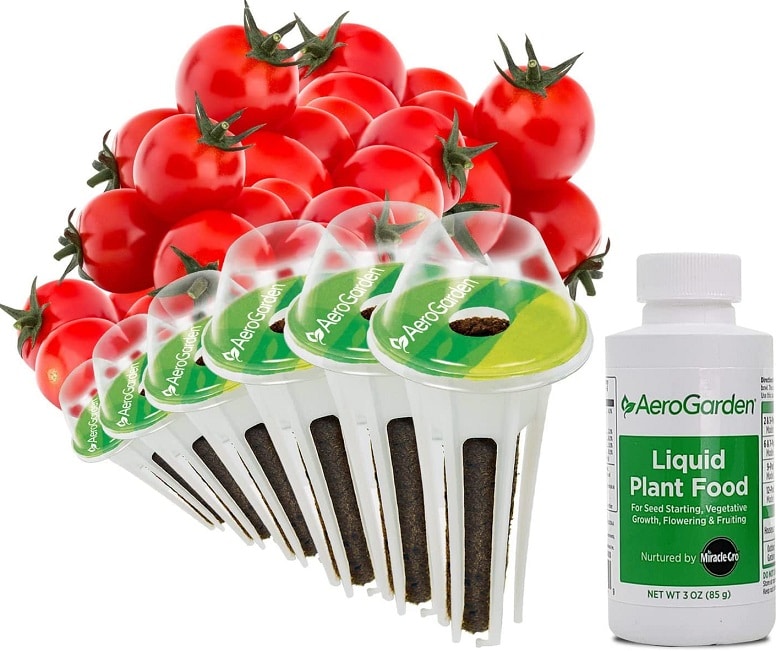
 AeroGarden Red Heirloom Cherry Tomato Seed Pod Kit for AeroGarden
AeroGarden Red Heirloom Cherry Tomato Seed Pod Kit for AeroGarden
- Hydroponic Indoor Garden, 6-Pod
- GERMINATION GUARANTEE, COMES WITH EVERYTHINGб Non-GMO seeds; No herbicides; No pesticides
- WORKS WITH ANY AEROGARDEN
FAQ
Can you grow hydroponics without nutrients?
No, it is not possible. Plants require nutrients to grow, and hydroponic systems do not contain soil to provide these nutrients. Nutrient solutions are the primary source of nutrients in hydroponic systems.
Can I use hydroponic nutrients for soil-based growing?
Hydroponic nutrients are specifically formulated for use in hydroponic systems and may not be suitable for soil-based growing. They may contain different nutrient ratios and levels than traditional fertilizers, which could cause imbalances in soil-based growing.
How to check hydroponic nutrient levels?
It can be checked using a variety of methods, including EC/PPM meters, pH meters, and nutrient test kits. These tools can help you monitor nutrient levels and adjust your nutrient solution as needed to ensure optimal plant growth and health.
Is it possible to use regular fertilizer for hydroponics?
Regular fertilizers are not recommended for use in hydroponic systems. They may contain elements that can build up in hydroponic systems and cause imbalances in nutrient levels. Hydroponic nutrients are specially formulated for use in hydroponic systems and are designed to provide plants with all the essential nutrients they need for healthy growth.
Are hydroponic nutrients safe?
Yes, hydroponic nutrients are generally safe when used as directed. However, it’s important to handle them with care and follow the manufacturer’s instructions to avoid overexposure or accidental ingestion. Some hydroponic nutrients may contain chemicals or heavy metals, so it’s important to choose high-quality nutrient solutions and handle them with care.
How often should I add hydroponic nutrients to my system?
The frequency of nutrient additions will depend on factors such as the size of your hydroponic system, the type of plants you’re growing, and the specific nutrient solution you’re using. Follow the manufacturer’s instructions and monitor your plants regularly to determine the best nutrient schedule.
Can I mix different hydroponic nutrient solutions together?
Mixing different nutrient solutions together can be tricky and may not always produce optimal results. If you choose to mix nutrient solutions, be sure to monitor nutrient levels closely and adjust as needed to avoid nutrient imbalances.
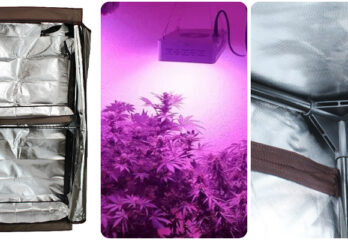
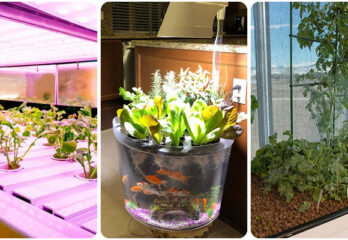
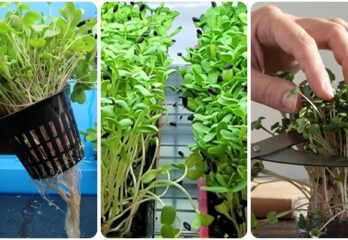
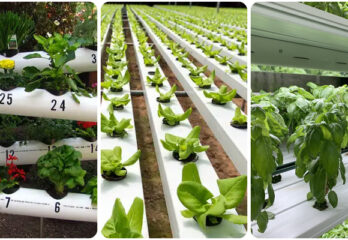
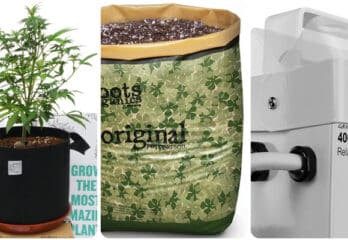
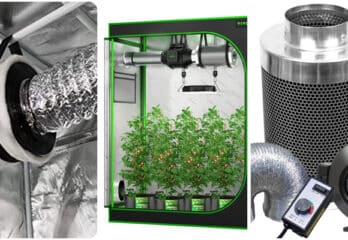
Leave a Reply